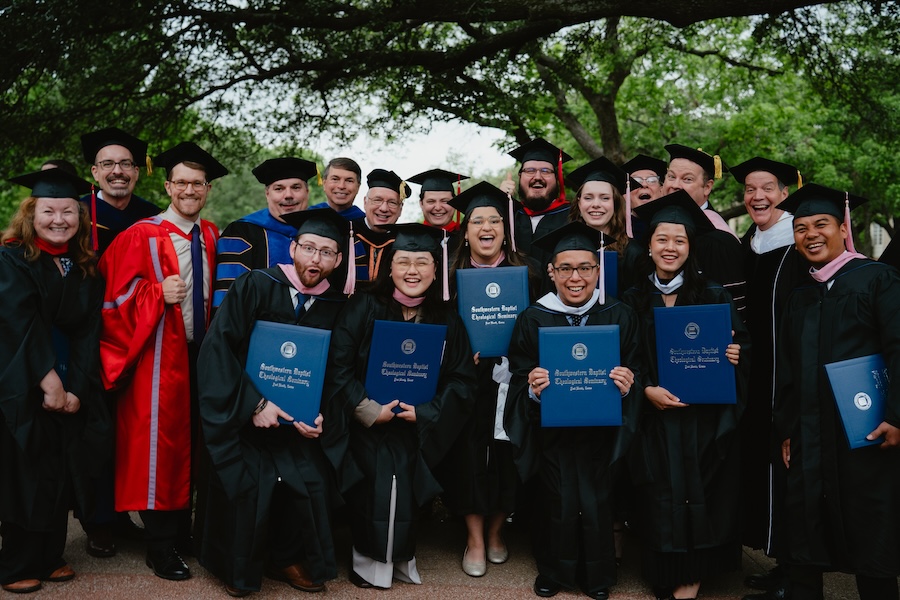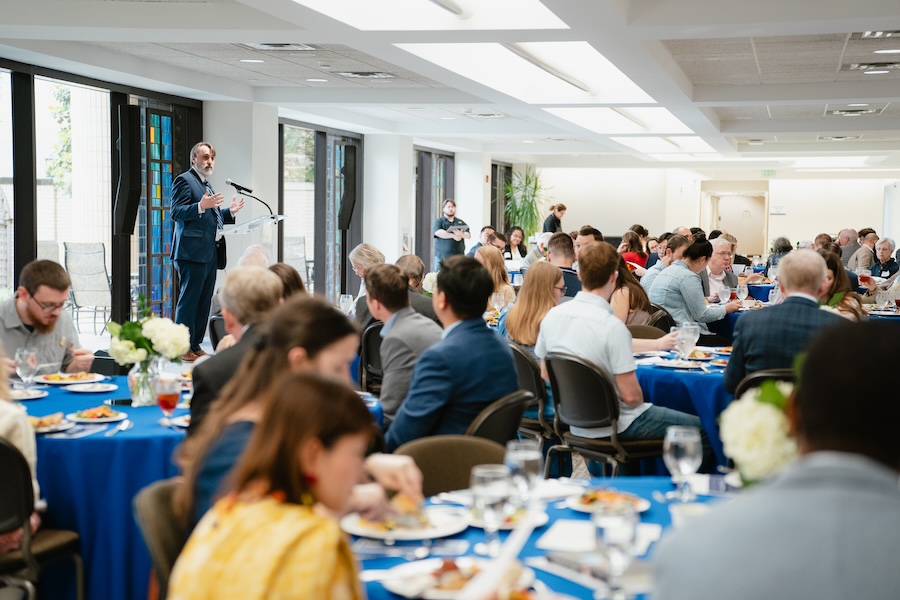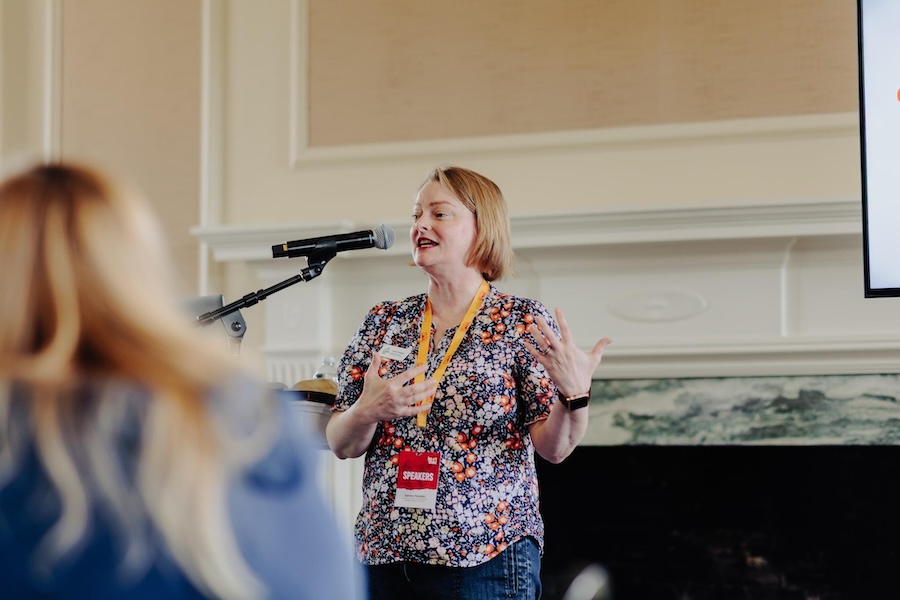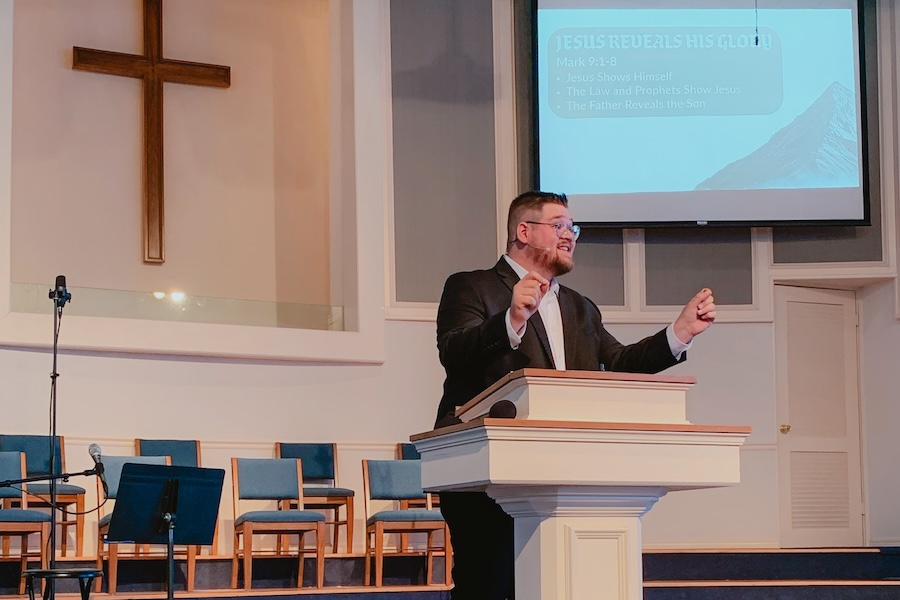Changing times and trends do not change the everlasting message, student finds at Southwestern
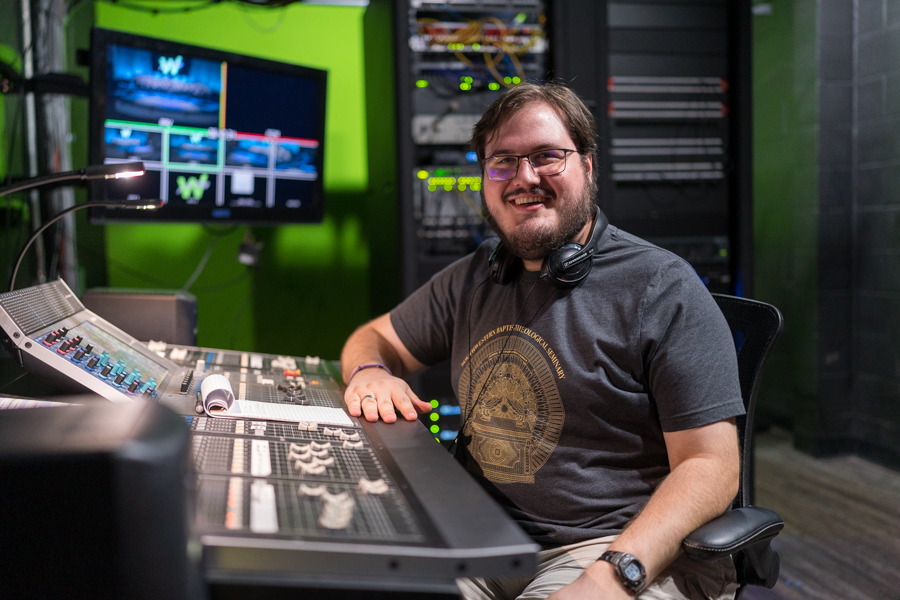
With the rapidly changing culture, methods, and tools of technology, Matthew Waymack, a second-year master of divinity in worship leadership student at Southwestern Baptist Theological Seminary, said that one of the best tools Southwestern students can hold firmly in their hands are those that will never change.
“As long as you take in the practice of holding methodology loosely, but holding theology firmly, theology and God do not change,” Waymack said, discussing the many areas to which churches have adapted and continue to change and grow.
At 21, Waymack said he doesn’t know what his future ministry holds, but Southwestern is preparing him for that unknown. For instance, as a future worship leader, he may not know how to be an expert on every instrument, but he is learning the tools of how to lead future worship team members.
“You may not know how to do that yourself, but seminary is going to train you how to teach somebody else to do it,” he said, adding that his professors are “training up leaders to go into positions where they can say, ‘Hey, I know how to speak your language.’ I may not be able to physically do that, but I can say, ‘Hey, why don’t we try this?’”
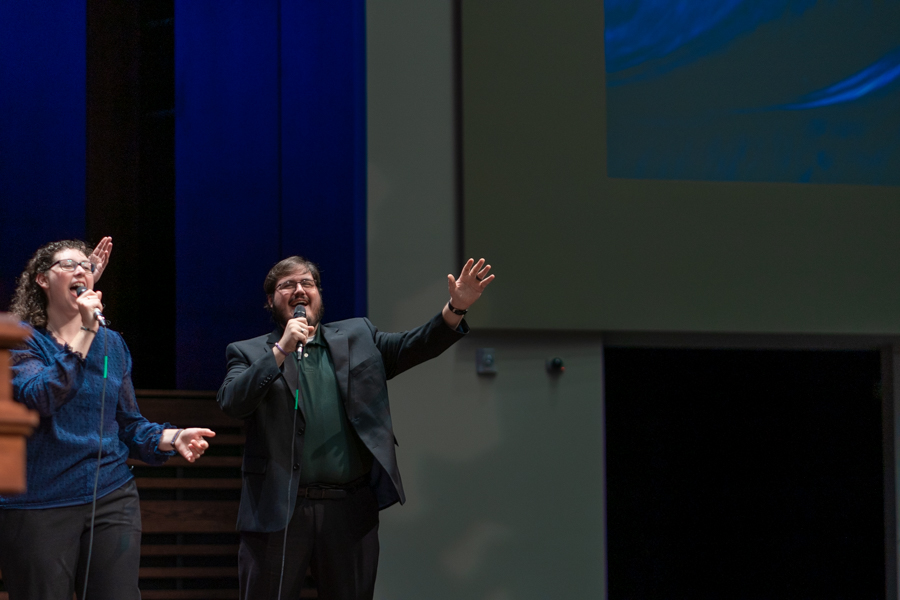
Waymack, a graduate assistant for the seminary from Flowery Branch, Georgia, and a soundboard operator at Wedgwood Baptist Church in Fort Worth, Texas, said he is implementing lessons he is learning from his professors, including Joseph R. Crider, dean and professor in the School of Church Music and Worship (SCMW).
“Our methodology may change, but as Dr. Crider says all the time, ‘theology informs our philosophy, which then informs our methodology,’” Waymack said. He appreciates the seminary’s strong emphasis on studying the Bible, the Gospel, and theology in the MDiv in worship leadership, a program which has 36 hours in courses on worship leadership and 50 hours focused on biblical, theological, Great Commission, and educational ministry courses.
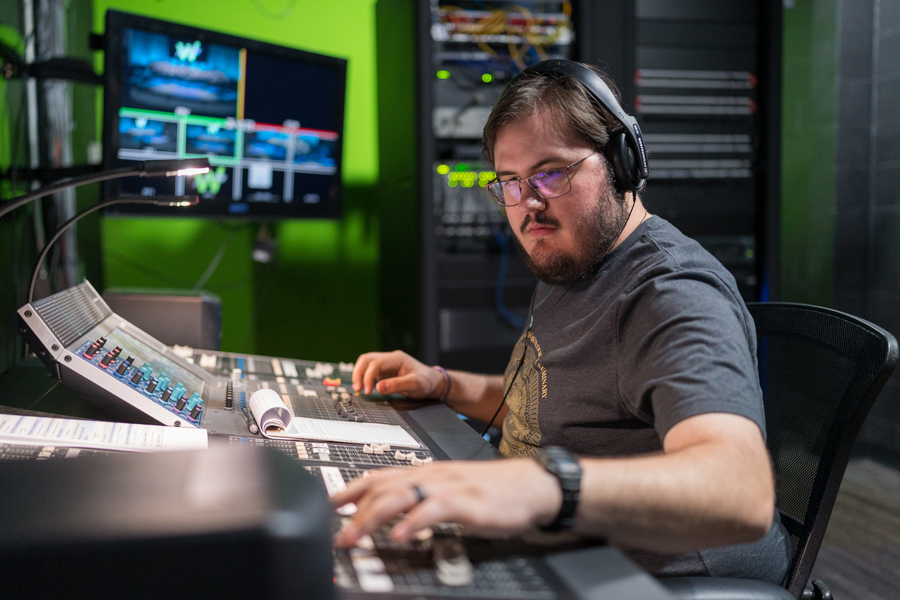
In addition to the methods, Waymack said that other areas like media and technology will also change. Waymack said, “Dr. Lewis gives us this beautiful picture. He says, ‘times will change, mediums will change, music will change. But God and the Word of God stay the same,’” citing the associate dean of the SCMW and professor, Charles T. Lewis Jr. It might be applied in different ways; it might gain a new meaning to you specifically as you’re growing. But the message never changed. It’s eternal.”
Twenty years ago, no one could have predicted how churches are adapting to new technology today, Waymack said, adding that likewise, churches don’t know where they will be in 20 years. “Since we cannot know where we’re going technology-wise, that’s why we have such an emphasis on studying God and learning who He is,” he said.
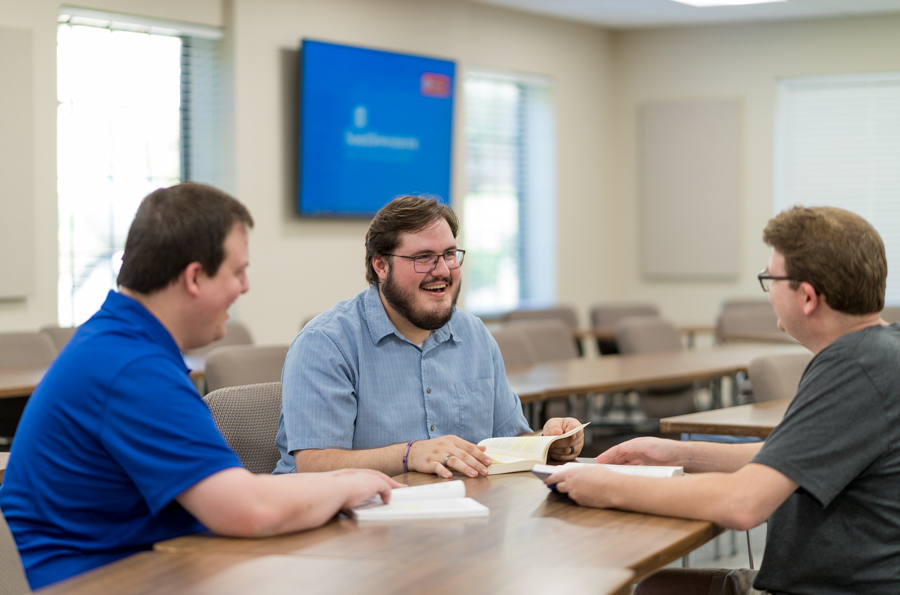
Waymack said worship styles also change, which underscores the need for a stronger grip on the study of God. “Theology and worship—the study of God and the praise of God—go hand in hand. You can’t separate them. What we learn about God informs how we then worship God,” Waymack said. “I’m also learning so much other: systematic theology, Greek, diving deeper into New Testament and Old Testament study. All of that is shaping my practices in worship ministry,” he said, adding that God gave 150 different ways to worship Him in the books of Psalms alone.
Seminary even helps prepare students for interviewing with a church for a ministry position, Waymack said. “With the interview process, when they ask questions like, ‘What’s your style?’, not only are you able to have an answer, you also have a way to present, through an interview process, a new way of doing things,” Waymack explained. As a result, the church’s vision for worship ministry may grow from the candidate’s experience at seminary.
His music classes are also impacting his ministry, including livestreaming his church’s worship services. “You just got to figure out how to identify a melody? How to identify a harmony? How to identify a baseline? What’s the rhythm? Who’s carrying the rhythm?” Waymack expounded. “What I’m seeing as the livestream audio coordinator is we’re using the training that we’re gaining at seminary to better produce a sound for an audience over a livestream.”
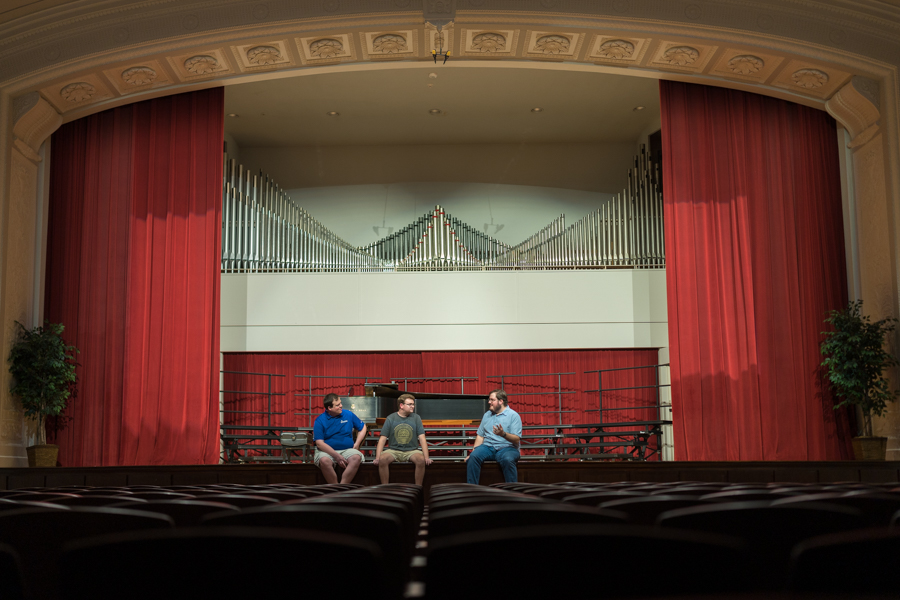
Waymack earned his bachelor’s of music degree from Truett McConnell University. However, even his undergraduate degree didn’t prepare him for the depths he is experiencing at Southwestern and “what Dr. Crider calls the multi-faceted jewel that worship really is. … You start realizing the more you dig, the more work you put in, the treasure lies just under the surface,” Waymack explained.
Additionally, Waymack recognizes that he’s being prepared not only with technical skills and theological knowledge, but to work with people. “Being a worship pastor is not just effectively leading songs; it is effectively leading people to be more like Christ on a daily basis. And that’s something that I hadn’t realized before coming here,” he reflected.
“And while no, I’m not on a stage leading in worship, but what I am doing is finding a need in the church,” Waymack concluded. “Even if I’m not applying directly worship theology into leading a soundboard, I still apply the stuff that I’m learning through the musical training into the soundboard, which then helps the overall service go smoother.”
